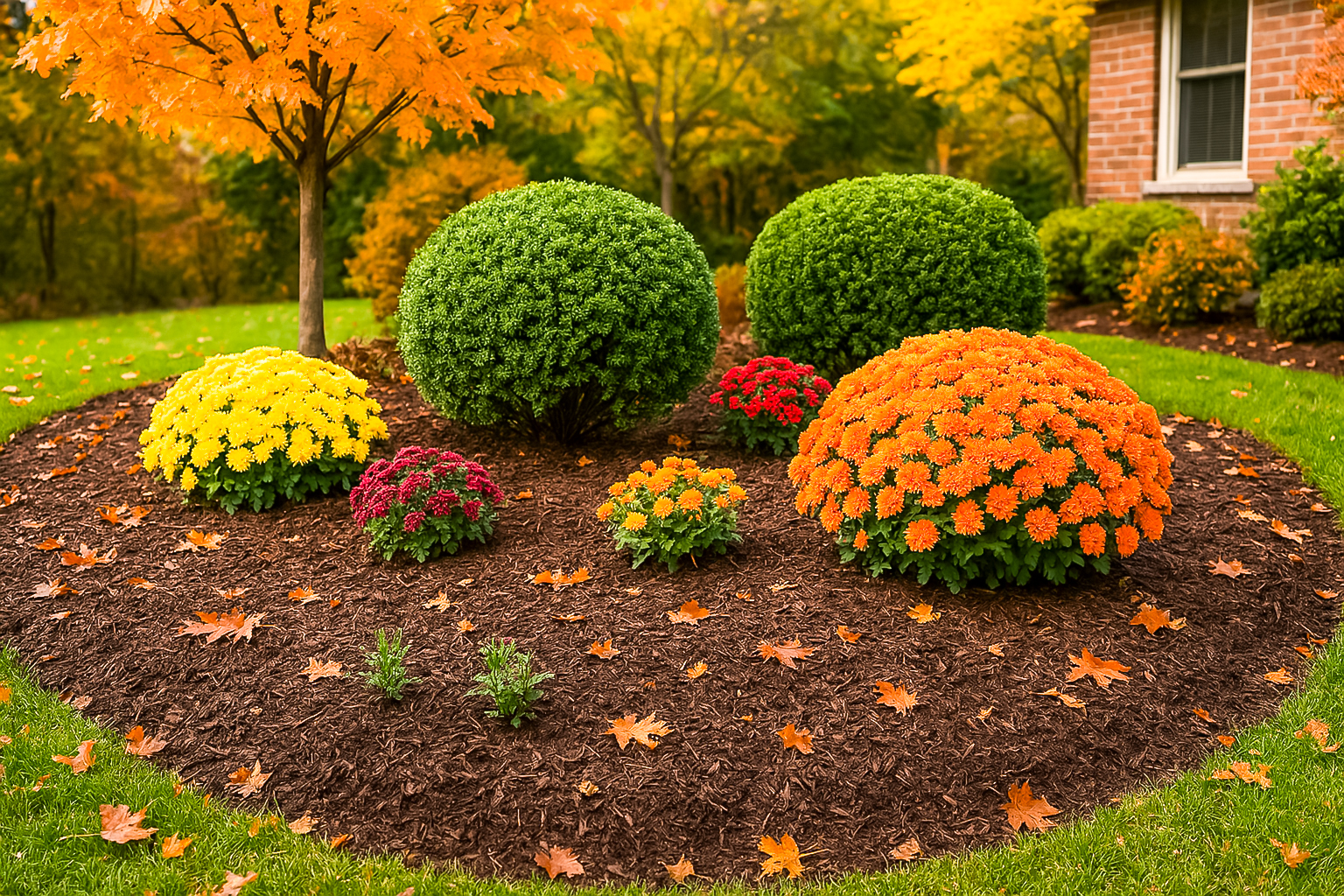
Protecting Your Shrubs & Flower Beds From Fall Weeds & Pests
As the leaves turn golden and the air gets crisp, your garden is quietly preparing for its long winter nap. But before it dozes off, there’s one last battle to fight: fall weeds and pests. In Southeast Michigan, this season brings sneaky invaders that can damage your shrubs, flower beds, and all the hard work you’ve put in this year.
Let’s break down how to protect your landscape with smart, simple steps that work right now in fall of 2025.
Know Your Enemies: Fall Pests in Michigan
1. Box Tree Moth
This invasive pest is wreaking havoc on boxwood shrubs across Oakland, Macomb, and surrounding counties. These green caterpillars can strip a shrub bare in days, leaving homeowners stunned at how quickly their landscape can go from lush to lifeless.
What to do:
- Inspect boxwoods weekly for caterpillars or webbing.
- Use Bacillus thuringiensis (Bt), an organic spray that targets caterpillars without harming beneficial insects.
- Want the full scoop? Safari Tree has a detailed guide on this exact issue.
Read our blog: Your Boxwoods Are Under Attack – What Homeowners Need to Know Now
%20.jpeg?width=1200&length=1200&name=Box%20Tree%20Moth%20(Cydalima%20perspectalis)%20.jpeg)
2. Overwintering Insects: The Good, the Bad & the Bugly
As the weather cools down, many insects start looking for a cozy place to spend the winter—and your garden is prime real estate.
The Good Guys:
Ladybugs, lacewings, and praying mantises are beneficial insects that help control pests like aphids and mites. You want these bugs to stick around!
The Troublemakers:
Unfortunately, pests like aphids, spider mites, and scale insects also hunker down in leaf litter, mulch, and even on your shrubs—waiting to cause problems in spring.
What to do And How to Help the Good & Stop the Bad:
- Leave a little leaf litter – A thin layer can shelter beneficial bugs without giving pests a free pass.
- Don’t over-prune – Some structure in your shrubs helps good insects overwinter safely.
- Clean up diseased plants – Remove anything with mold, mildew, or pest damage to prevent spring outbreaks.
.png?width=1200&length=1200&name=Lady%20Bug%20on%20a%20Fall%20Leaf(1).png)
Weed Watch: Fall’s Sneaky Spreaders
Common Fall Weeds in Southeast Michigan:
- Chickweed
- Purple Deadnettle
- Henbit
- Glyphosate-resistant Horseweed (Marestail)
These weeds thrive in cooler temps and can form dense mats that choke out your perennials and shrubs.

Common Chickweed – MSU IPM

Drive-by Botany: Purple Dead-nettle and Morrow’s Honeysuckle – MSU Extension
Photo caption: Patches of purple dead-nettle are a common sight in southern Michigan during the month of May.



What to do:
- Apply a fall pre-emergent herbicide (like 2,4-D or dicamba) to prevent seed spread.
- Hand-pull weeds before they go to seed.
- Mulch flower beds with shredded leaves or straw to block sunlight and suppress growth.

Fall Maintenance Tips That Actually Work
Here’s your quick checklist for protecting shrubs and flower beds this fall:
- Clean up garden beds – Remove dead annuals and diseased leaves.
- Mulch smart – Use organic mulch to insulate roots and suppress weeds.
- Inspect shrubs weekly – Look for pest damage and signs of stress.
- Leave some mess – Brush piles and leaf litter help beneficial insects overwinter.
- Divide and transplant perennials – Fall is the perfect time to do this in Michigan.

Bonus Tip: Add Fall Color While You Protect
Want to keep your garden looking great while you prep for winter? Try planting New England asters, Montauk daisies, or ornamental kale. These hardy plants thrive in Michigan’s fall weather and add a pop of color while supporting pollinators.

Wrapping Up the Season Right
Fall is your garden’s last stand before winter, and with a little effort, you can protect your shrubs and flower beds from weeds and pests that would love to take over. Safari Tree is here to help with expert treatments and seasonal advice tailored to Southeast Michigan.
Want a free fall garden inspection? Contact Safari Tree today!




